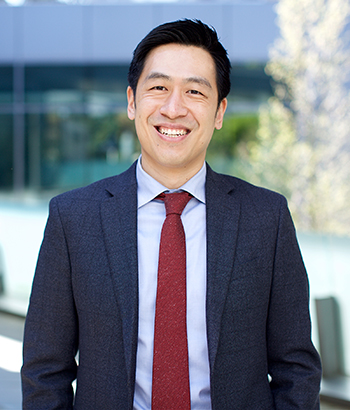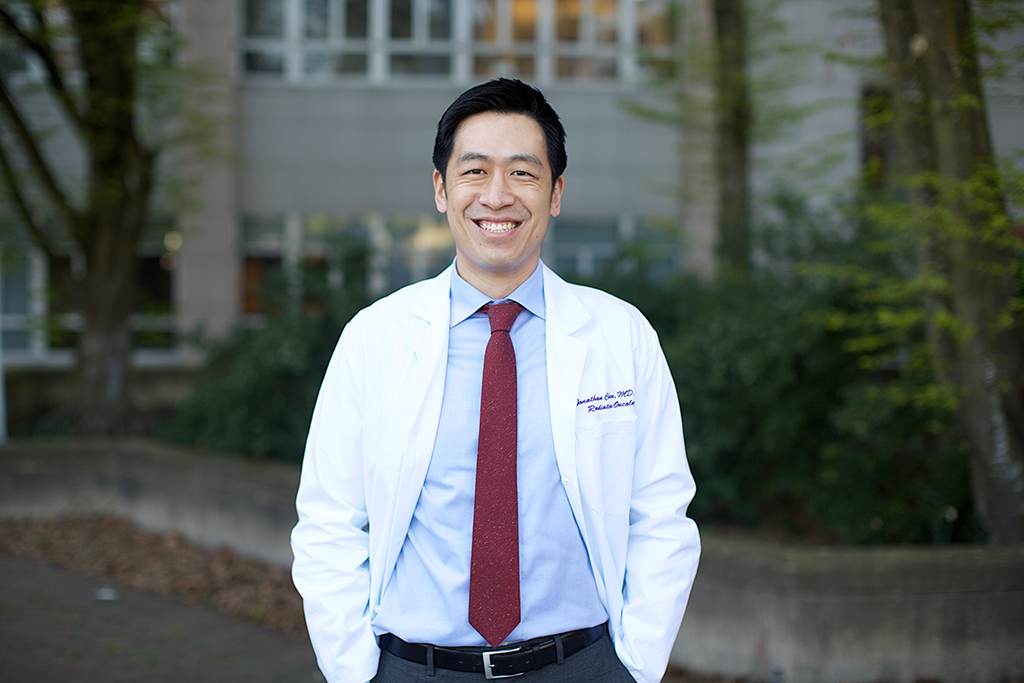By Dr. Jonathan Chen
June is Men’s Health Month, an opportunity to raise awareness about important health issues that affect men. Cancer is the No. 1 leading cause of death in Asian men in the United States. At Fred Hutchinson Cancer Center, we treat all types of cancer that affect this community, including cancer of the prostate, lung, liver, stomach, and colon/rectum.
Prostate cancer is the most common type of cancer in men. It is estimated that one in eight men will be diagnosed during their lifetime. Most are over the age of 65, but it can develop in younger men as well. Unlike other cancers, such as lung cancer, there are no specific behaviors that are known to increase the risk of prostate cancer. Therefore it is important for men to undergo routine screening. Currently, the American Cancer Society recommends that men discuss prostate cancer screening with their doctor starting around age 50. Men at higher risk, such as those with a family history, should consider getting screened earlier, starting at age 45.
While prostate cancer is sometimes detected due to urinary problems, most men are diagnosed after screening with a blood test called the prostate-specific antigen (PSA) test. Always consult with your doctor for general questions on screening or determining if a PSA test is right for you.
Current studies suggest prostate cancer is less commonly diagnosed in Asian men compared to other ethnic groups, but it is not clear if it is due to biological reasons. It’s possible that it is related to lower screening rates. In some Asian cultures, talking about cancer is taboo, and men may be hesitant to discuss their health issues with family or even their doctor. Language barriers can also be a challenge. Exposure to the importance of PSA screening may also be less common in Asian populations. All of these factors can increase the likelihood of being uninformed about the significance of screening or harboring misconceptions about the screening process.
In addition to prostate cancer, there are other cancers that affect this community for which early detection and screening are critical.
Lung cancer is not the most common cancer found in Asian men, but it is the leading cause of cancer death. Similar to prostate cancer, earlier detection could mean better outcomes. For a long time, there has not been a screening test for lung cancer, and most cases were discovered in advanced stages. Now, studies have established the importance of screening CT scans for those with a significant smoking history. Men should talk to their doctor about whether CT screening is recommended based on their personal risk factors. For current smokers, quitting is still by far the best thing one can do to reduce the risk of lung cancer.
According to the American Cancer Society, colorectal cancer is the third leading cause of cancer death in Asian American men. It is also one of the few cancers that has effective screening tests. The U.S. government recommends screening for colorectal cancer starting around age 45 to 50 until at least age 75. There are multiple methods of screening, including colonoscopies and newer stool-based tests. Men are encouraged to talk to their doctor about the different options available to see what is best for them.
Liver and stomach cancers are both much more common in Asians, especially those who were born in Asia. It is possible that this is due, in part, to certain infections that are more common in Asia, such as hepatitis B and H. pylori. There are no proven screening tests for these cancers, but there are steps that one can take to reduce risk, such as receiving hepatitis vaccines.
Cancer is a serious health issue, but fortunately there are many effective treatments available. It is important for our community to be educated about the importance of cancer screening and prevention, which can lead to earlier detection and better outcomes. As we observe Men’s Health Month, let us encourage all men, especially Asian men, to take charge of their health and start the discussion today.
To make an appointment for screening at Fred Hutch, call us toll-free at (855) 557-0555.
Jonathan J. Chen, MD, PhD, is a radiation oncologist at Fred Hutchinson Cancer Center, and will soon be the Medical Director of radiation oncology at the UW Medical Center – Northwest campus. He specializes in the treatment of genitourinary cancers (such as prostate cancer) and ocular melanoma, and has particular expertise in proton therapy.





